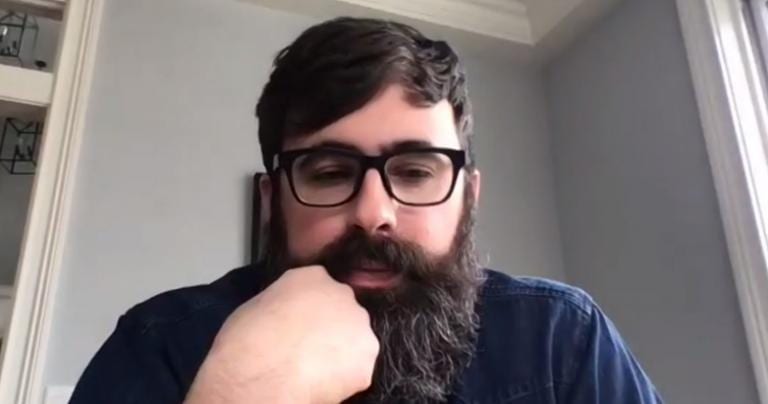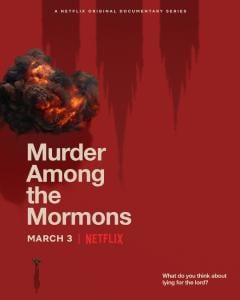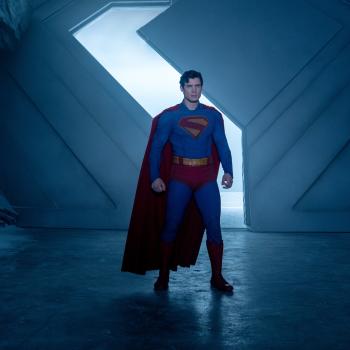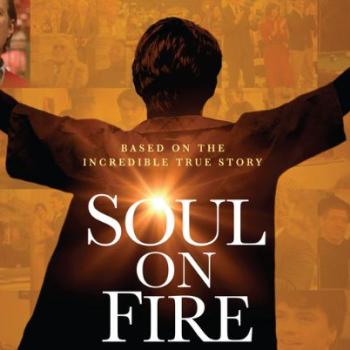Jared Hess, the writer and director behind the classic comedy hits “Napoleon Dynamite” and “Nacho Libre” plunges into a much heavier subject matter in the new Netflix documentary series “Murder Among the Mormons.” The three-episode project centers on a series of bombings that rocked Salt Lake City in 1985. The Salt Lake City native, who was a boy at the time, teamed with a film school colleague Tyler Measom and BBC Studios to revisit the tragedies for modern audiences.

In this exclusive interview, Hess speaks about his progression from comedy king to true crime documentarian, the power of forgiveness, and what genre he’s tackling next.
“Napoleon Dynamite” and “Nacho Libre” are comedy classics. You can’t go anywhere without people quoting them. There are legions of fans. But this documentary is very different. There’s nothing funny about it. What appealed to you about making it?
I live in Salt Lake City, and I’m a big Mormon history buff. I just think it’s such a fascinating world and culture. out there. One of my good friends whose name is Curt Bench and he’s in the film. He owns a rare and used bookstore that specializes in Mormon history books and theology. He had direct dealings with Mark Hofmann in the 80s. They were good friends. I would go to lunch with Curt and he would just tell me these stories. I was six years old in 1985 when this all happened, so I didn’t really kind of learn about the story until my adulthood. But Curt would just tell me these stories and I was just blown away. I read every book on it that I could. And then Tyler Measom, the co-director, the same thing, he had a passion for it as well. Tyler and I have known each other for years since film school. When we both discovered that, we had just really wanted to tell this story. Weirdly enough, I live probably two minutes away from Mark Hofmann’s house. So, it’s all just kind of in your face here. You can’t really go anywhere in the community and not meet someone or know somebody that had a direct connection to what occurred.

There’s one thing that really stuck with me in the third episode, and I have thought about it probably every day since I’ve seen the documentary is the guy who says, “He destroyed me financially. But I’m not going to let him grow me emotionally and spiritually.” Amazing forgiveness. That’s probably not the main point of the documentary, but to me, it was the biggest takeaway.
You know what, I’m so glad you felt that way that that was such an important thing for us. Al Rust, he literally was financially ruined afterward, and the fact that he was willing to forgive. When he told Mark Hoffman’s father, “Hey, tell Mark that I forgive him.” That guy’s a saint. Al Rust is the salt of the earth, just an incredible human being and someone that was just horribly taken advantage of at the time. There were a number of other profound forgiveness stories that occurred during the courses that we just didn’t have the time or real estate in the documentary would be to be able to tell. But that was one because he’s such an important character you know, in the series, and being able to tell that was amazing. But another one that I love to share is that will to actually one Steve Christensen who died, his father is named Matt Christensen and is a big kind of figure in the Salt Lake Community. He was the president of the Tabernacle Choir and I think the Tabernacle Orchestra in Salt Lake for a number of years. And Steve, his son was killed by Mark. At the hearing from Mark Hofmann, Matt Christensen reached over to Hofmann’s dad and said, “Hey, I want you to know I forgive your son, I don’t hold any ill will against you at all.” Like it was like kind of a beautiful moment of forgiveness. And then later, strangely enough, Matt Christensen, he also owns a bunch of men’s clothing stores here. He kind of is the one to where when Mormon missionaries are getting ready to go in their mission, he’s the one-stop-shop where you can get all your suits to go out. Dorie Hofmann, Mark’s wife, was left alone to raise her family while her husband was in prison. When her kids grew older, her oldest son was getting ready to go on a mission, and she didn’t have any money to pay for it. And Matt Christensen stepped in and said, “Let me get you whatever you need for your son.” Those stories just bring a tear to your eye. After everything that occurred, the victims forgave and helped Hofmann’s family.
Is there anything else that you want people to take away? Other than the historical record?
Yes. There are just so many relevant themes in this story. Nobody is immune from deception. We’re all vulnerable. All susceptible to it. And especially in a world of misinformation, we just have to be careful and really do our homework about what we choose to believe, what narratives we choose to follow. There’s a lot to unpack in this story, and that’s what always resonated with me. It’s a true-crime story, unlike anything out there.
Let me ask you about your whole career trajectory, because “Napoleon Dynamite” puts you on the map. And then you had “Nacho Libre” and “Gentlemen Broncos.” You have perfected a form of comedy that’s not crude or vulgar. I would think that’s a product of your faith upbringing.
Right. It’s funny because I haven’t really thought a lot about that. There was never like an attempt to make something (clean), it was just, I think especially with “Napoleon,” it was so autobiographical for me growing up in Preston, Idaho. So much of the film is just drawn from the transcripts and idiotic conversations that me and my five younger brothers would have. After it came out, my mom’s like, “Well, that was a lot of embarrassing family material.” My brother called me and asked me one time to bring in Chapstick while he was in school. So much of it was just drawn from real life. I guess so much of my inspiration and influence just comes from that weird world.
How much input or access did you have from the LDS Church when you were putting this documentary together?
Richard Turley, who’s in the film, and was the former assistant church historian. At the time that we did the interview with Richard, he actually was the director of public affairs for the entire Church when we interviewed him back in February of 2020. He actually wrote an incredible book on the whole Mark Hofmann saga called “Victims.” So, he’s kind of an authority on the subject and knows it inside and out, and also knows intimately the perspective of the church as they were experiencing things. He was instrumental in helping us access archival footage, and all kinds of things. For people that want to know more about the story, and get more details, I would highly recommend his book “Victims.”
So, what is next for you, Jared? Because you had you have a comedy streak, and now you have a true crime streak. So, is there a horror movie next or superhero epic?
Weirdly enough, it’s animation. I’m in the middle of doing an animated comedy for Netflix, called “Film of the Unicorn.” And it’s an animated feature-length film that (my wife) Jerusha I wrote, and then I’m co-directing.
Will there be any collaborations with any of your previous actors?
Yeah, we’re in the middle of casting right now. So, there’s more to come on that. But yeah, there definitely will be some goofballs that I’ve worked with before in the film.
“Murder Among the Mormons,” directed by Jared Hess and Tyler Measom, will begin streaming on Netflix on March 3.












